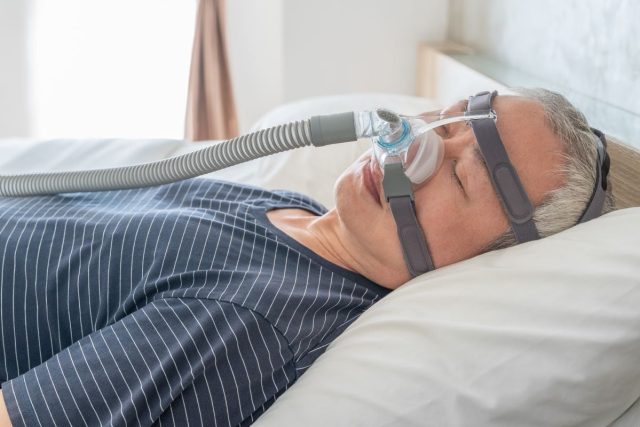Two randomized controlled trials show reduction in AHI; significant improvements seen in all secondary end points
By Elana Gotkine HealthDay Reporter
WEDNESDAY, June 26, 2024 (HealthDay News) — Tirzepatide reduces the apnea-hypopnea index (AHI) among individuals with moderate-to-severe obstructive sleep apnea and obesity, according to a study published online June 21 in the New England Journal of Medicine to coincide with the annual meeting of the American Diabetes Association, held from June 21 to 24 in Orlando, Florida.
Atul Malhotra, M.D., from the University of California in San Diego, and colleagues conducted two phase 3 trials involving adults with moderate-to-severe obstructive sleep apnea and obesity. Trial 1 enrolled participants who were not receiving treatment with positive airway pressure (PAP) at baseline, while trial 2 enrolled those who were receiving PAP therapy at baseline. In both trials, participants were randomly assigned to receive 52 weeks of the maximum tolerated dose of tirzepatide (10 or 15 mg) or placebo.
The researchers found that in trial 1, the mean change in AHI was −25.3 and −5.3 events per hour with tirzepatide and placebo, respectively, at week 52 (estimated treatment difference, −20.0 events per hour). In trial 2, the corresponding mean change in AHI was −29.3 and −5.5 events per hour (estimated treatment difference, −23.8 events per hour). For all prespecified key secondary end points, significant improvements were observed with tirzepatide.
“In two trials, the participants who received tirzepatide had a clinically meaningful change in sleep-disordered breathing and alleviation of perceived sleep disturbance and sleep-related impairment, as well as reductions in common obstructive sleep apnea-related cardiovascular risk factors,” the authors write.
Several authors disclosed ties to biopharmaceutical companies, including Eli Lilly, which manufactures tirzepatide and funded the study.
Copyright © 2024 HealthDay. All rights reserved.



















